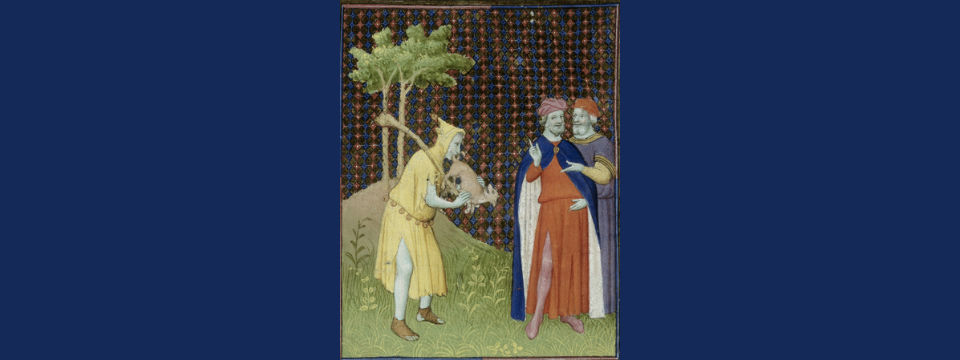And the Lord told me that he wished me to be a new fool in the world, and that he did not want to lead us by any other way than by that wisdom; for by your learning and your wisdom God will confound you.
–St. Francis of Assisi, in John R. H. Moorman, A History of the Franciscan Order (Oxford: Oxford University Press, 1968), p. 55.
Portfolio manager @jposhaughnessy’s brilliant thread on Twitter recently inspired me to set down some thoughts of my own. I forgot to thread them, though! Some people seemed to like them — thank you, @Gidimeister! — so here they are, pulled together for convenience, slightly edited for sharpness, with a couple of new thoughts added and with links throughout for reference.
In investing, as in life, too many people confuse wishes for beliefs and beliefs for evidence. Things aren’t valid just because you want them to be.
Separating what you believe and what you know may be the most intellectually difficult aspect of investing.
In journalism, good fact-checkers don’t merely verify the evidence. They scrupulously record how and where they verified it. Turning the verification process from binary (“true” or not?) to multi-phase (how and where did I check?) reduces the error rate.
I just put “true” in quotation marks because most of the best journalists I know seldom use words like “true” or “truth.”
In investing, as in journalism, there’s always another side of the story.
As you “learn” more, if your confidence doesn’t go down before it goes up, then you probably aren’t learning.
To cleave apart what you can know from what you only think you know, you must make yourself a new fool in the world.
If you aren’t using blind analysis, you are probably kidding yourself when you proclaim “I see!”
The past, no matter how long and how many data points you believe it contains, is a sample size of one (n=1).
The future isn’t a straight line you can extrapolate from the past. The future is a storm into which we are blown backwards.
Any investor who thinks he “knows” what the future holds (and you are male if you think that) has a lot to learn — about himself.
A useful exercise: Assert nothing without prefacing the words “In my opinion.” See whether your beliefs can then stand up.
Develop the habit of converting “I know that…” to “I think I know that…” Your beliefs should suddenly look shaky and naked, even to you.
That should prompt you to seek out the empirical evidence that can either function as a solid foundation for your beliefs or knock them down.
Walk as often as you can through the graveyard of your dead beliefs, especially the ones you murdered by your own hand.
That will remind you how small and absurd most of your beliefs are and how hard it is to outthink the billion-brained mind of the market.
Look especially hard at the idea that would make your grandmother or a small child think you must be wrong. It’s approximately 99% likely to be wrong.
And there’s a faint chance it could make you rich.
Investing is a profoundly lonely activity, and it’s hard to pick your way through the endless minefield of bullsh*t and boobytraps that the financial industry lays down unless you find a community of other investors at least as smart as you.
Knowing that you’re not in it alone can help you stay in it.
Warren Buffett is famous for saying you should “be fearful when others are greedy and to be greedy only when others are fearful.”
An even higher aspiration for investors is to turn your own emotions inside-out.
Be fearful when you are greedy, and be greedy when you are fearful.
Observe your own emotions, and seek to do the opposite of what your gut is driving you to do.
An investor who bought during the financial crisis, instead of selling or freezing, added rocket fuel to future returns.
That takes great self-control, but you don’t have to be superhuman to do it.
You just have to cultivate the knack of seeing yourself as a stranger.
“Investors hate uncertainty.” Nonsense! That’s like saying you hate gravity or mortality or evolution. Only fools hate uncertainty.
Investors accept uncertainty as the fundamental substrate of the financial markets. Anytime investors are “certain” about anything, they are probably wrong.
As Bertrand Russell said: “When a man tells you that he knows the exact truth about anything, you are safe in inferring that he is an inexact man.”
Your job as an investor is less to know something than to know whether you know something and to know how you can know something…
…and to see the world around you as strange and ever-changing…
…and to see the world within yourself as inconsistent, fickle and unreliable…
…and to remember that the riskiest moment is when you are right…
and to treat your gut feelings as information — about what you probably should not believe or do.
Accept that no one can think like this all the time, but aspire to think like this as often as you humanly can.
Further Reading
Warren Buffett’s annual letters to Berkshire Hathaway shareholders
Jason Zweig, Your Money and Your Brain
Jason Zweig, The Devil’s Financial Dictionary
Benjamin Graham, The Intelligent Investor
Lawrence A. Cunningham and Stephanie Cuba, The Warren Buffett Shareholder: Stories from Inside the Berkshire Hathaway Annual Meeting
Roger Lowenstein, Buffett: The Making of an American Capitalist
Alice Schroeder, The Snowball: Warren Buffett and the Business of Life
Carol J. Loomis, Tap-Dancing to Work: Warren Buffett on Practically Everything, 1966-2013
